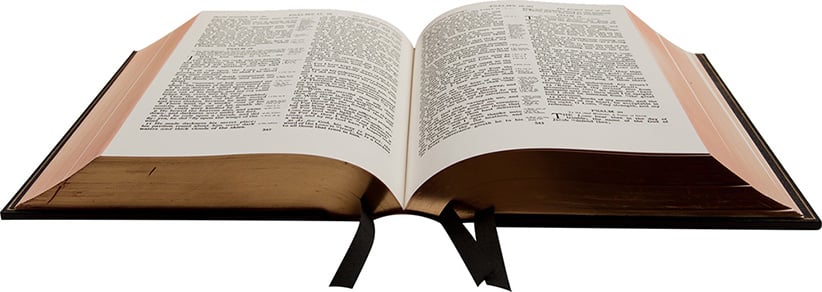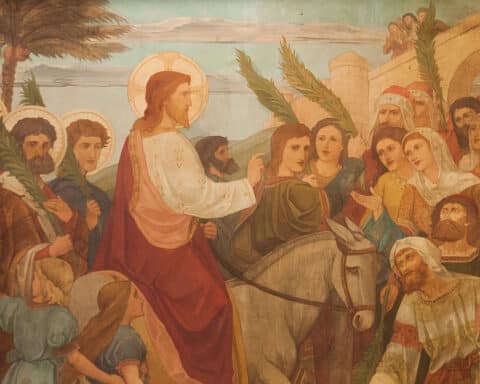
Over the last several weeks, the Lectionary has not given us this harmony. We have been faced with the strangeness of dispossession, of losing everything to follow Jesus Christ.
The Scriptures continue with this troubling dissonance. In Amos, we hear about Israel’s original sin, its forgetfulness to share everything with the needy. Jesus proclaims a worrying parable of a dishonest steward, resulting in the exhortation that we cannot serve God and money.
And Paul asks us to pray for kings and those in authority, longing for peace.
| 25th Sunday in Ordinary Time – Sept. 22 |
|---|
|
AM 8:4-7
PS 113:1-2, 4-6, 7-8
1 TM 2:1-8
LK 16:1-13
|
How is this possible? Should not Paul, based on Amos and the Gospel, be leading a revolution? “Act now,” Paul should say. Forget about peace, the time for revolution is here.
Let us attend more closely to the quizzical Gospel, so that we can understand Paul’s perplexing exhortation.
A shallow reading of the parable of the dishonest steward would suggest the following: Jesus is open to fraud if it keeps one in a position of power.
Closer examination suggests a less sensational reading. When faced with his possible destruction, the dishonest steward is willing to do anything to survive. In dealing with worldly matters, he has wisdom.
If this is true for the children of the world, what about the children of the light? The children of the light should know exactly how to deal with wealth. Yet they hang onto it. They grasp for it, refusing to dispossess themselves of power and wealth.
But like the dishonest steward, they’re in a dramatic situation. If they don’t give it all away, then they risk damnation. You can’t serve God and mammon, the God of Israel and the God of wealth. So, choose the right one. Who, in the end, do you serve?
Paul knows the answer to this question. For him, it’s obvious. We serve Christ and Christ alone. We lift our hands in peaceful prayer for our leaders, not because we adore them as idols. They are creatures just like us. They are not mediators to God, emperors with divine power.
All power is from Jesus Christ alone. Having given ourselves over to his Lordship, we may pray for them. They’re just like us.
The emperor and the governor have been revealed for who they are. Not God, not all-powerful. Instead, they are keepers of peace and order.
What are we to make of Paul’s exhortation to pray for our leaders in the United States today? Our leaders — on both sides of the aisle — defraud the poor, take away the life of the innocent, and turn the resident alien into a criminal monster.
In the halls of power, prestige and mammon are the currency of the day.
As Catholics, there is another way. We adore Jesus Christ, the sole mediator between God and humanity. It is Jesus, the one who became weak for the weak, who emptied himself out of love to save men and women.
In our local parishes, we may become living signs of a politics infused with the charity of Jesus Christ. After all, we’re stewards of a divine household, a place where every man and woman can discover the startling grace that divine love alone is the credit of the kingdom.
This politics of love unto the end will place us out of harmony with the present polis, including the parties that run this country.
And that’s good news.
Timothy P. O’Malley, Ph.D., is the director of education at the McGrath Institute for Church Life at the University of Notre Dame.





